Senior Thesis
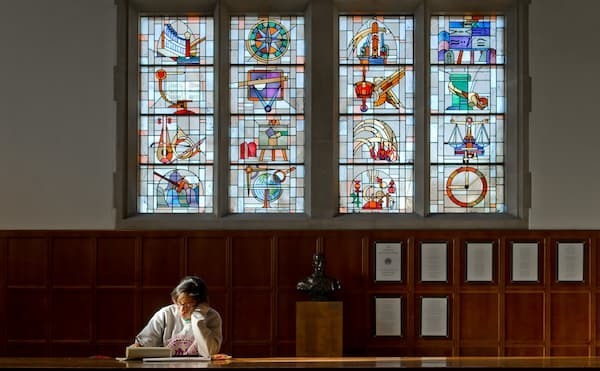
PLS ecourages all of its students to write a senior thesis. This 35-60 page thesis (~9,000-15,000 words) is your chance to explore a topic or a text of your choosing in greater detail from across the disciplines, and to work one-on-one with an advisor who will support you in bringing this capstone project to completion. Many PLS students produce extraordinarily creative and intellectually rigorous pieces of scholarship that allow them to integrate their wide-ranging interests.
There are three ways to complete the thesis in your senior year:
- Register for the two PLS Thesis Tutorials with a PLS professor as your advisor.
- Register for the two PLS Thesis Tutorials with a non-PLS professor as your advisor.
- Complete the thesis process in another major (many majors offer the senior thesis as an "honors" option).
While students follow many paths to completing the thesis, below is a rough timeline to help you begin to think about yours.
"Writing the thesis was really an experience of synthetic creation. Though we write a number of papers in the Program, spending a full year (or more) on the singular project was a rewarding process of leading myself to make a contribution to a greater academic conversation, building it in a structure-free environment that is unmatched in most courses. I'm confident that the experience will prove profoundly effective for more substantially cultivating skills of synthesis and independent creation." — Sam Cannova, PLS '21, Business Analyst at McKinsey & Company.
Senior Thesis Timeline
Sophomore Fall
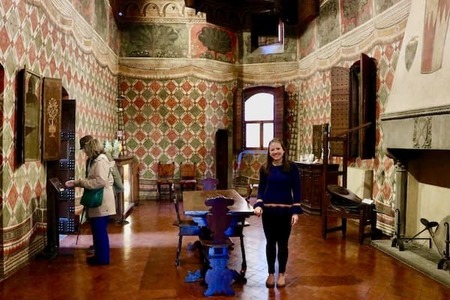
If you are planning to study abroad in the summer or in the spring of your junior year (which is the best time for most PLS students), applications are typically due in November of your sophomore year. As you begin to think about whether and where you would like to go, you might consider your experience abroad as an opportunity to get a jump start on the research for your senior thesis.
Many PLS students have used their study abroad experience to visit archives, libraries, and sites relevant to their topics, to conduct interviews, to gain further mastery of requisite research languages, or to take classes on the topic that may not be available at Notre Dame. Some study abroad programs offer special research fellowships, like the London Kennedy Scholars and Rome International Scholars, that will help you develop research skills and hone your research questions. Notre Dame also offers a number of other research funding opportunities to get you started.
Sophomore Spring
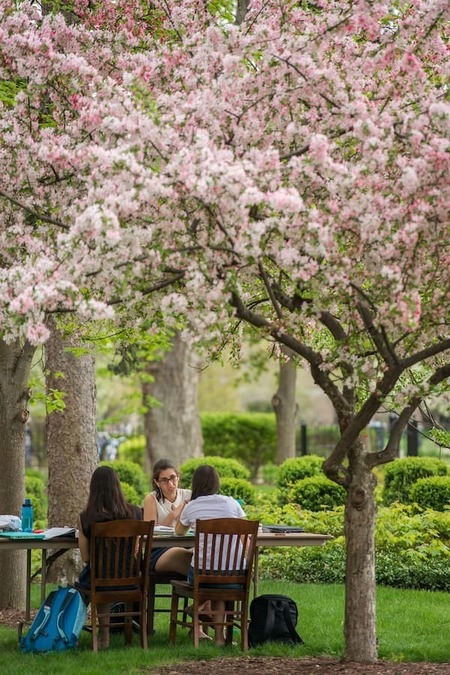
Regardless of whether you plan to study abroad, which is certainly not a necessary step in the thesis process, you might consider using one of your elective spaces in the spring of your sophomore year to take a class that will help you explore a possible area of research interest, especially if you are interested in something that is not covered in depth by the PLS curriculum or is not studied until the senior year. This may be true of topics engaging more contemporary issues or authors.
You might also talk with your PLS professors to see if you can write a research paper for one of your PLS classes. Many excellent theses begin as shorter papers completed for one of the PLS Seminars or Tutorials. This is a great way to try out a topic to see if it holds your interest and to begin a conversation with a potential faculty advisor.
Junior Summer
It is probably no surprise that members of the PLS community have fairly extensive summer reading lists. This summer you might take note of what kinds of books are populating your list and think about how one or more of them might be the germ of a thesis topic. This could be especially helpful if you are having trouble narrowing down a topic (or, really, have no idea where to begin!).
Often the best projects grow out of personal interests that may not seem immediately "research-worthy," but almost anything you can think of has its own body of literature and scholarly conversation around it. Once you start paying attention to the authors who cite, and are cited in, the books you love, you will probably find that your interests connect with a whole world of fellow seekers. Getting to know that world and becoming a part of it is what research is all about!
Junior Fall
This is the time to start having exploratory conversations with potential faculty advisors. To identify faculty in your general area of interest, you should begin by consulting their departmental faculty page and, if they are PLS faculty, their senior thesis profile, which is updated annually.
Don't worry if you are still casting about for a topic. Faculty have a lot of experience refining their own research questions, and they will be able to help you find your way from a general disciplinary interest, like philosophy or literature or theology, to a well-defined and manageable line of inquiry. Even if you feel like you know exactly what you want to do for your thesis, don't be surprised or discouraged if faculty suggest ways of further narrowing the scope or adjusting the aims of your research. The more work you do at this stage to clarify your thinking, the fewer headaches you will have a year from now, when you realize that what you had set out to do is not feasible.
Faculty might also suggest that you speak with their colleagues in PLS or in other departments. Again, don't be discouraged. All of the faculty want to be sure that you get the best support possible for your project, and they want you to find someone whose research interests and expertise will most closely match your own.

While there are plenty of resources at Notre Dame to help you complete your thesis, there are also many opportunities to access resources beyond the campus. If you are interested in a topic related to Italy, you should consider applying for PLS's Monteverdi Prize, the deadline for which is usually in late December. If you are looking for funding for a summer research trip, you should explore the opportunities available through the Institute for Scholarship in the Liberal Arts, Flatley Center for Undergraduate Scholarly Engagement, and the Nanovic Institute for European Studies.
If you already have plans to study abroad in the spring and hope to get some research done while you are there, you should begin identifying the archives, libraries, and other points of interest before you go. Some institutions require researchers wanting to access their materials to make arrangements ahead of time. Thus, it is advisable to do a little planning in advance so that you find all of the doors open to you when you get there. Finally, if you ever simply don't know where to begin, ask one (or more!) of the PLS faculty. We are here to help!
Junior Spring
The formal senior thesis process begins in the spring of junior year, when you submit your research proposal and are matched with a faculty advisor. If you are writing your thesis in another major, you do not need to complete the full proposal and matching process. You should speak with the Director of Undergraduate Studies (DUS) for that major to be sure that you are clear about their expectations for completing a senior thesis. When you have confirmed your plans with them, you should send an email to the DUS for PLS, Dr. Eric Bugyis (ebugyis@nd.edu), indicating the department, advisor, and proposed topic of your thesis. You should also copy the DUS for the major in which you are writing the thesis on this communication. You will follow the deadlines and other thesis expectations for that major.

If you plan to work with a non-PLS faculty person and they have agreed to supervise the thesis, you should confirm this by sending an email to Dr. Bugyis, indicating the topic and advisor. You should copy the non-PLS faculty advisor on this communication. Dr. Bugyis will then create a section of the PLS Thesis Tutorial for that advisor, who will set the expectations for the work to be completed each semester and will submit your grade. You will register for this Thesis Tutorial section and follow the PLS deadlines and formatting protocols.
All students writing their theses in PLS with a PLS faculty advisor must submit a proposal to the department administrator, Becky Badger (pls@nd.edu), by the deadline for that year, which will typically be in March. Most proposals will be about 1-2 pages (~500-1500 words), and they will give a general orientation to the body of literature or literatures you plan to engage, culminating in a clearly articulated research question or set of closely related questions and an initial bibliography. You are encouraged to work with one or more faculty to help you craft your thesis proposal, even if those faculty do not end up advising the project.
There will be a matching day shortly after the proposals are due when the faculty will meet to determine which faculty person is the best fit for each of the thesis projects proposed. Once you are matched with a PLS faculty advisor, you will register for their section of the PLS Thesis Tutorial for senior fall and begin the process of meeting with them to determine how best to proceed with the project.
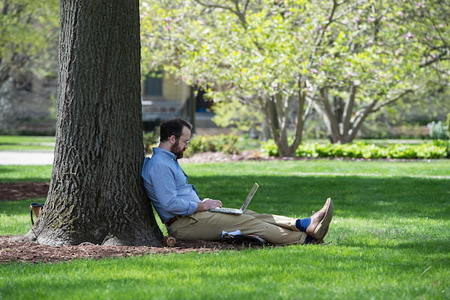
Senior Summer
By the end of your junior year, you should have a rough outline of your thesis project and an initial list of sources to get you started. You should also have met at least once with your faculty advisor to come up with a research plan.
The summer is a great time to get a running start on your research by reading through the sources on your initial bibliography and finding new sources on the basis of that reading. This is also a great time to visit archives and other places of interest with funding from the sources listed above or to begin analyzing the information you collected while you were studying abroad. If your project does not involve such site-specific research (and many will not), just find a comfortable chair in a beautiful spot, crack open a book, and, with a notebook at your elbow, start collecting your thoughts.

Senior Fall
At the beginning of the fall, you and your advisor will determine a regular schedule of meetings and the work that is to be completed for those meetings. This will vary from advisor to advisor and student to student. But you should plan to keep in regular contact with your advisor about your progress.
Faculty know that the research and writing process tends to ebb and flow. So, don't be worried if you fall behind at particular points in the semester. The important thing is that you remain in contact with your advisor. It is at those points when you feel overwhelmed and just plain stuck that faculty can often be the most helpful in reframing the project, finding new paths forward, and offering much-needed perspective.
The goal is to produce a full draft of the thesis by the end of the fall. This is not the polished final draft, but a rough draft that both you and your advisor will expect to be significantly revised. The best writing is rewriting!
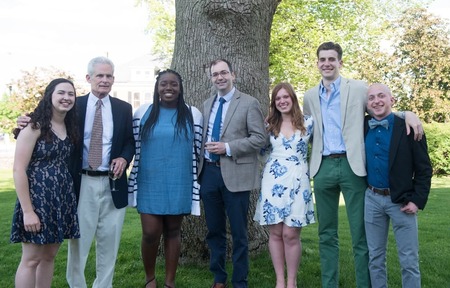
Senior Spring
You are in the home stretch! The work of this semester is revision. This may involve targeted research to find sources to shore up a particular part of your argument or significantly rewriting earlier sections of the thesis that can now be strengthened or clarified by work that you did later in the fall semester. Once again, your advisor will help you determine a plan for producing a polished final draft by the deadline, which is typically in March.
When you submit your final draft to the PLS office, your advisor will also send up to three names of possible second readers to the DUS for PLS, Dr. Eric Bugyis (ebugyis@nd.edu). The second reader and your advisor will each write a letter assessing the strengths and weaknesses of the thesis and, possibly, offer suggestions for future work. Thus, the thesis is only the beginning of a lifetime of learning.
At the annual PLS senior dinner to celebrate graduation, the best thesis for that year will be recognized with the Bird Award, named in honor of PLS founder Otto Bird.